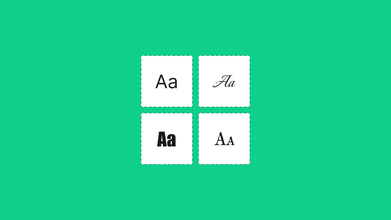The Top 6 No-Code Website Builders In 2024
Dec 31, 2023 8258 seen
Introduction
In the ever-evolving digital technology landscape, businesses constantly seek efficient, user-friendly solutions to establish a robust online presence. No-code website builders have emerged as game-changers, empowering individuals and organizations to create websites without extensive coding skills. As we enter 2024, let's explore the advancements and innovations in no-code website builders and how they continue to reshape how we approach web development.
The no-code movement has gained momentum in recent years, driven by the need for faster development cycles and accessibility to non-technical users. In 2024, this trend has reached new heights, with no-code platforms becoming more sophisticated and versatile. These platforms eliminate the traditional barriers to entry for website development, allowing entrepreneurs, small businesses, and even large enterprises to bring their ideas to life with ease.
Intuitive User Interfaces
No-code website builders in 2024 have prioritized user experience, offering even more intuitive interfaces. Drag-and-drop functionalities, seamless navigation, and real-time previews make it effortless for users to design and customize their websites. These platforms leverage the power of visual elements, reducing the learning curve and enabling users to see instant results as they build and modify their websites.
Advanced Templates and Design Options
The variety and quality of templates available in no-code website builders have expanded significantly. Users can choose from a wide array of professionally designed templates that cater to different industries and styles. Furthermore, customization options have become more granular, allowing users to fine-tune every aspect of their website's design, ensuring a unique and personalized online presence.
Mobile Responsiveness and Cross-Platform Compatibility
In 2024, no-code website builders are placing a strong emphasis on mobile responsiveness and cross-platform compatibility. With increasing users accessing websites from smartphones and tablets, websites must provide a seamless experience across various devices. No-code platforms now offer tools to preview and optimize websites for different screen sizes, ensuring a consistent and engaging user experience.
Integration Capabilities
To meet the diverse needs of businesses, no-code website builders have expanded their integration capabilities. Users can seamlessly integrate third-party services, tools, and applications into their websites without writing a single line of code. This includes integrations with e-commerce platforms, customer relationship management (CRM) systems, analytics tools, and more. This level of integration empowers businesses to create comprehensive and functional websites tailored to their specific requirements.
Collaboration Features
No-code platforms in 2024 recognize collaboration's importance in the development process. Features like real-time collaboration, commenting, and version control are now standard, enabling teams to work together efficiently. This collaborative approach fosters creativity, accelerates project timelines, and ensures all stakeholders have a say in the website's development and refinement.
Artificial Intelligence (AI) Integration
Integrating AI into no-code website builders is a notable trend in 2024. These platforms leverage AI for various purposes, including content optimization, chatbot creation, and data analytics. AI-driven suggestions help users make informed design decisions and automated processes streamline tasks such as image optimization and SEO enhancement. As a result, users can harness the power of AI without delving into the complexities of coding.
6 Top No-Code Website Builders
Now, let’s discuss some of the best no-code website builders of 2024.
Wix: Empowering Creativity with Ease
Wix continues to be a dominant force in the no-code website builder space. With its intuitive drag-and-drop interface, Wix allows users to create stunning websites with minimal effort. In 2024, Wix expanded its template library, offering various options for various industries. The platform's App Market enables users to integrate additional functionalities seamlessly, from e-commerce features to social media feeds.
Webflow: Designing with Precision
Webflow stands out for its focus on giving users a high degree of design control. In 2024, Webflow's visual development approach has evolved, offering advanced interactions and animations without coding. The platform's CMS (Content Management System) capabilities make it a preferred choice for those building dynamic and content-rich websites. Webflow also emphasizes the importance of responsive design, ensuring that websites look polished across all devices.
Bubble: Unleashing the Power of Custom Web Apps
Bubble takes no-code development to the next level by enabling users to build websites and fully functional web applications. In 2024, Bubble offers a comprehensive visual development environment where users can define workflows, create databases, and design user interfaces. With its focus on logic and data handling, Bubble empowers entrepreneurs and startups to bring their software ideas to life without relying on traditional coding.
Squarespace: Elegant Design Made Simple
Squarespace remains popular for those seeking a perfect blend of simplicity and elegance. In 2024, Squarespace's templates will become even more refined, catering to artists', bloggers', and businesses' needs. The platform's e-commerce features have also seen enhancements, making it a go-to solution for individuals looking to sell products or services online. Squarespace's commitment to user-friendly design ensures that even beginners can easily create polished websites.
WordPress with Elementor
While WordPress has been a staple in the web development world, the introduction of Elementor has transformed it into a powerful no-code solution. Elementor is a drag-and-drop page builder plugin for WordPress, offering a visual and intuitive way to design websites. In 2024, the combination of WordPress and Elementor gives users the flexibility to leverage the robust features of WordPress while enjoying the ease of visual design offered by Elementor.
Tilda: Design-First Approach to No-Code Websites
Tilda stands out for its design-first approach to no-code website building. In 2024, Tilda offers a platform where users can create visually appealing websites with a focus on storytelling. Its flexible design blocks system enables users to arrange content in a way that suits their narrative, making it an excellent choice for creatives, bloggers, and businesses looking to convey a compelling story through their online presence. Tilda also emphasizes easy integration with third-party services, expanding functionality without coding.
Conclusion
In the rapidly evolving landscape of web development, no-code website builders continue redefining how we create and manage online content. The advancements witnessed in 2024 underscore the commitment of these platforms to democratize website development, making it accessible to individuals and businesses of all sizes.
The intuitive interfaces, advanced templates, mobile responsiveness, integration capabilities, collaboration features, and AI integration collectively contribute to the appeal of no-code website builders. As we move forward, it is exciting to anticipate further innovations that will continue empowering individuals and businesses to build and maintain a dynamic online presence without extensive coding expertise. The future of web development is undoubtedly more inclusive, flexible, and accessible thanks to the ongoing evolution of no-code website builders.


